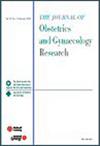Tadalafil suppresses LPS-induced inflammation and improves pregnancy outcomes in a pregnant mouse model
Abstract
Aim
This study investigated the efficacy of tadalafil in reducing inflammation and improving pregnancy outcomes in an lipopolysaccharide (LPS)-induced mouse model of perinatal complications.
Methods
Pregnant C57BL/6J mice were divided into three groups: control (C), LPS (L), and LPS + tadalafil (LT). The LT group received tadalafil from 10 days post-coitum (dpc), and LPS was administered intraperitoneally to the L and LT groups at 11 dpc. Mice were sacrificed 2 h post-injection for inflammatory marker analysis, with plasma and placentas collected. Remaining mice were sacrificed at 14 dpc to assess miscarriage and FGR. Placental damage was scored, cytokine levels measured by ELISA, and TNFα and NF-κB expression examined via immunohistochemistry.
Results
Fetal weight was significantly lower in the L and LT groups compared to the C group, with the LT group showing a significant increase compared to the L group. Absorption rates were significantly higher in the L group compared to the C and LT groups. At 14 dpc, placental necrosis scores were significantly higher in the L and LT groups than in the C group, while the LT group showed a significant decrease compared to the L group. Plasma inflammatory cytokine levels (TNF-α, IL-1β, IL-6) were significantly elevated following LPS administration but reduced with tadalafil treatment. Additionally, TNF-α expression and NF-κB activity in the placenta were significantly higher in the L group compared to the C and LT groups.
Conclusions
Tadalafil reduced inflammation and improved pregnancy outcomes, suggesting its potential for managing inflammation-related perinatal complications.

 求助内容:
求助内容: 应助结果提醒方式:
应助结果提醒方式:


